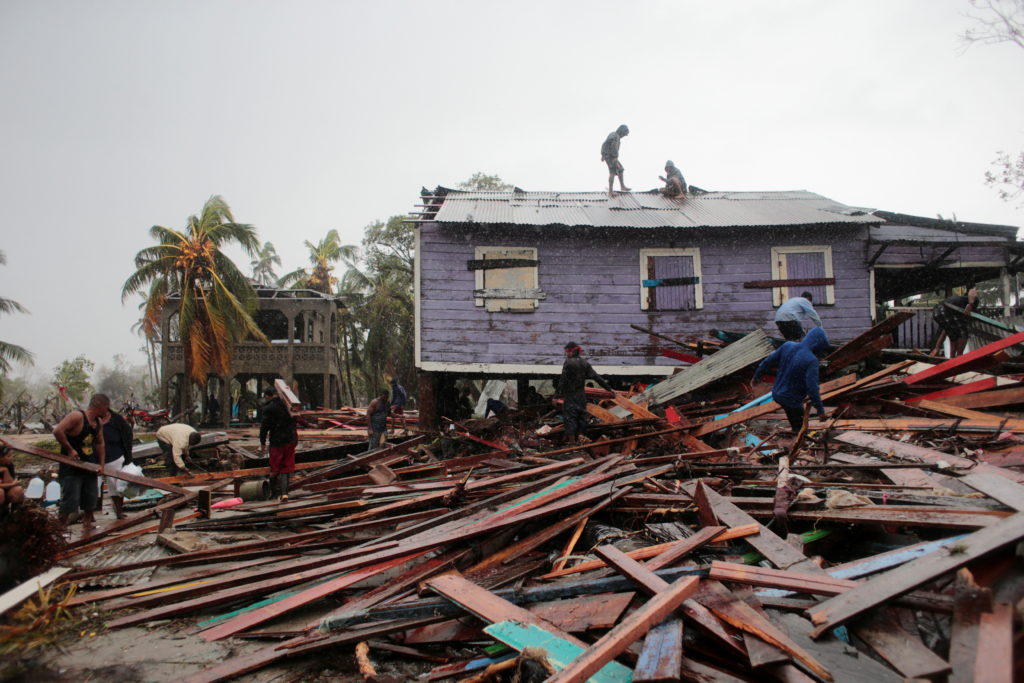
UK SCIENTISTS HELP DIRECT AID TO HURRICANE-HIT COMMUNITIES
New Delhi: UK scientists have been helping to guide international efforts to help people of Central America hit by Hurricanes Eta and Iota.
Royal Navy and US helicopters are now flying aid directly to areas in greatest need, thanks in part to work by scientists from the University of Reading, University of Bristol, HR Wallingford, Fathom and the European Centre of Medium-Range Weather Forecasts (ECMWF), in a project funded by the UK Foreign, Commonwealth & Development Office.
The scientists are supporting efforts to guide the huge humanitarian response required in the aftermath of Hurricanes Eta and Iota, which have so far killed 160 people and affected 5 million across Nicaragua, Honduras and Guatemala. Parts of Belize, El Salvador, Mexico, Costa Rica, Colombia and Panama have also been affected.
Before the hurricane hit their analysis of the latest weather and river forecasts pointed humanitarians to where the worst floods will happen and which communities would be most at risk.
Their daily updates have been shared, via the UK government, with the International Federation of the Red Cross and the Red Crescent, the United Nations Office co-ordinating Humanitarian Activities (OCHA), relevant governments via British embassies in the region, and to disaster managers and humanitarian agencies worldwide.
“By using one of the most powerful flood forecasting tools in the world, we were able to pinpoint this extraordinary flooding five days before this rain started to fall” – Dr Liz Stephens, University of Reading
Wendy Morton, Minister for European Neighbourhood and the Americas at the Foreign, Commonwealth & Development Office, said:
“World-leading science is now supporting our humanitarian effort, taking the UK’s disaster response to the next level. Using the latest weather mapping and flood forecasts, we can now quickly send aid to the worst hit areas. During the horrific hurricanes in Central America we’ve seen families forced from their homes and at risk of rising flood water. Alongside the UK’s £1 million to the Red Cross and military support from Royal Fleet Auxiliary ship Argus, our scientists are helping pinpoint those most in need.”
Dr Liz Stephens, Associate Professor in Climate Risks and Resilience at the University of Reading, said: “These two hurricanes have delivered a sickening one-two to Central America, with Eta dropping up to half a year’s worth of rain, and Iota subjecting many areas with similar rainfall totals on already saturated catchments. In Honduras, the Sula valley of over two million people is suffering from two floods in a fortnight, both worse than the flooding for Hurricane Mitch in 1998, the most devastating hurricane to ever hit the region.
“By using one of the most powerful flood forecasting tools in the world, we were able to pinpoint this extraordinary flooding five days before this rain started to fall, and highlight which communities would be hardest hit, helping the UK government and international community to direct aid where it is needed the most.”
This information anticipated the needs of the Red Cross responders in the region, leading to an early donation of £1 million for aid from the people of Britain, and informing the Royal Navy in advance where they would need to direct their operations.
The scientists have been using the Global Flood Awareness System (GloFAS), jointly developed by ECMWF and the European Commission, and operated from Reading as part of the European Copernicus Emergency Management Service, which provides an overview of flooding events in the next 30 days.
The ongoing collaboration between ECMWF, Copernicus and leading UK scientists has helped to provide governments and aid agencies worldwide with potentially life-saving forecasts of floods.
